- Markets, finance and governance
- Government initiatives and regulations
- Ghana - government initiatives, private sector collaborations
- Strengthening the capacity of 100 schools in managing menstrual hygiene in central region of Ghana
Strengthening the capacity of 100 schools in managing menstrual hygiene in central region of Ghana
3688 views
- raheghana
-
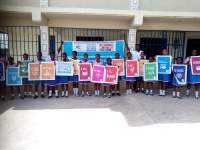 Topic AuthorLess
Topic AuthorLess- Posts: 1
- Likes received: 0
STRENGTHENING THE CAPACITY OF 100 SCHOOLS IN MANAGING MENSTRUAL HYGIENE IN CENTRAL REGION OF GHANA
Executive Summary
Menstruation is an integral and normal part of human life, indeed of human existence, and menstrual hygiene is fundamental to the dignity and wellbeing of women and girls and an important part of the basic hygiene, sanitation and reproductive health services to which every woman and girl has a right. Globally, approximately 52% of the female population (26% of the total population) is of reproductive age. Most of these women and girls will menstruate each month for between two and seven days.
The subject of menstruation however, is too often taboo, and has many negative cultural attitudes associated with it, including the idea that menstruating women and girls are „contaminated‟, „dirty‟ and
„impure‟. Women and girls in rural setting and in particular girls in schools suffer most from stigma and lack of services and facilities to help them cope with the physical and psychological pains they undergo during their menstrual periods; inadequate preparations for the young girls not yet experiencing menstrual hygiene, lack of or inadequate water to clean and wash the body, lack of materials managing menstrual hygiene, private space and wash rooms and inappropriate facilities for disposal of materials for those who have used pads. In spite of these issues, menstrual hygiene has been routinely ignored by professionals in the water, health and education sectors.
Currently the means of coping for girl pupils is the use of old cloth, dirty napkins and other un-hygiene materials. Some schools have provided pads ranging from sophisticated imported pads to locally manufactured pads by RECFAM and AfriPads. In some cases, parents and even teachers will have provide the pads to the girls. Within the context of RAHE-GHANA, an initial start has been made with baseline surveys, preliminary meetings with stakeholders and training of school girls to make re-usable menstrual pads (RUMPS).
Problem analysis
Although menstruation is an integral and normal part of human life, indeed of human existence, the subject is however too often a taboo and has met many negative cultural hindrances and attitudes due to the perceptions among especially men and boys, including the idea that menstruating women and girls are „contaminated‟, „dirty‟ and „impure‟. Women and girls in rural setting and in particular girls in schools suffer most from stigma and lack of services and facilities to help them cope with the physical and psychological pains they undergo during their menstrual periods; inadequate preparations for the young girls not yet experiencing menstrual hygiene, lack of or inadequate water to clean and wash the body, lack of materials managing menstrual hygiene, private space and wash rooms and inappropriate facilities for disposal of materials for those who have used pads. In spite of these issues, menstrual hygiene has been routinely ignored by professionals in the water, health and education sectors.
More school menstruating girls in Central region primary schools experience isolation and rejection from their fellow pupils who regard them as „contaminated‟, „dirty‟ and „impure‟. Women and girls in rural setting and in particular girls in schools suffer most from stigma and lack of services and facilities to help them cope with the physical and psychological pains they undergo during their menstrual periods; inadequate preparations for the young girls not yet experiencing menstrual hygiene, lack of or inadequate water to clean and wash the body, lack of materials managing menstrual hygiene, private space and wash rooms and inappropriate facilities for disposal of materials for those who have used pads. In spite of these issues, menstrual hygiene has been routinely ignored by professionals in the water, health and education sectors.
Our surveys have shown that a total of 70% of the girl pupils report to miss 1-3 days of primary schools per month, which translates to a loss of 8 to 24 school days per year. This means per term a girl pupil may miss up to 8 days of study. This represents around 10% of a girl pupils‟ attendance missed due to menstruation; a majority of these girls note that they are physically sick and weak, cannot concentrate, or feel psychologically effects. In addition, 60% of the head teachers note that the girls absentee themselves from school during their menstrual cycle; Head and senior teachers further noted that they calculate around 10% of the total number of girls dropping out of school due to menstrual management and their schools do not have satisfying menstrual facilities. Over 100% of the senior women teachers affirmed the provision of menstrual pads to girls at school is not available and another 60% of the girl pupils stated that they need better facilities (hardware aspects). In addition, issues around sensitization of boy pupils, and
the role of the senior woman teacher were also cited. Currently the means of copying for girl pupils is the use of old cloth, dirty napkins and other un-hygienic materials.
RAHE-GHANA proposes this application to respond to the needs of building capacity of schools and teachers in improving and upholding menstrual hygiene and sanitation of girls in selected public schools of vulnerable communities in Central region. RAHE-GHANA will offer direct in-kind support to schools and selected girls, train them in menstrual hygiene and sanitation practices and encourage the replication of acquired knowledge at household levels. At the same time focus on increasing awareness and capacity of young girls to deal with menstrual hygiene.
Menstruation is an integral and normal part of human life, indeed of human existence, and menstrual hygiene is fundamental to the dignity and wellbeing of women and girls and an important part of the basic hygiene, sanitation and reproductive health services to which every woman and girl has a right. Globally, approximately 52% of the female population (26% of the total population) is of reproductive age. Most of these women and girls will menstruate each month for between two and seven days.
The subject of menstruation however, is too often taboo, and has many negative cultural attitudes associated with it, including the idea that menstruating women and girls are „contaminated‟, „dirty‟ and
„impure‟. Women and girls in rural setting and in particular girls in schools suffer most from stigma and lack of services and facilities to help them cope with the physical and psychological pains they undergo during their menstrual periods; inadequate preparations for the young girls not yet experiencing menstrual hygiene, lack of or inadequate water to clean and wash the body, lack of materials managing menstrual hygiene, private space and wash rooms and inappropriate facilities for disposal of materials for those who have used pads. In spite of these issues, menstrual hygiene has been routinely ignored by professionals in the water, health and education sectors.
Currently the means of coping for girl pupils is the use of old cloth, dirty napkins and other un-hygiene materials. Some schools have provided pads ranging from sophisticated imported pads to locally manufactured pads by RECFAM and AfriPads. In some cases, parents and even teachers will have provide the pads to the girls. Within the context of RAHE-GHANA, an initial start has been made with baseline surveys, preliminary meetings with stakeholders and training of school girls to make re-usable menstrual pads (RUMPS).
Problem analysis
Although menstruation is an integral and normal part of human life, indeed of human existence, the subject is however too often a taboo and has met many negative cultural hindrances and attitudes due to the perceptions among especially men and boys, including the idea that menstruating women and girls are „contaminated‟, „dirty‟ and „impure‟. Women and girls in rural setting and in particular girls in schools suffer most from stigma and lack of services and facilities to help them cope with the physical and psychological pains they undergo during their menstrual periods; inadequate preparations for the young girls not yet experiencing menstrual hygiene, lack of or inadequate water to clean and wash the body, lack of materials managing menstrual hygiene, private space and wash rooms and inappropriate facilities for disposal of materials for those who have used pads. In spite of these issues, menstrual hygiene has been routinely ignored by professionals in the water, health and education sectors.
More school menstruating girls in Central region primary schools experience isolation and rejection from their fellow pupils who regard them as „contaminated‟, „dirty‟ and „impure‟. Women and girls in rural setting and in particular girls in schools suffer most from stigma and lack of services and facilities to help them cope with the physical and psychological pains they undergo during their menstrual periods; inadequate preparations for the young girls not yet experiencing menstrual hygiene, lack of or inadequate water to clean and wash the body, lack of materials managing menstrual hygiene, private space and wash rooms and inappropriate facilities for disposal of materials for those who have used pads. In spite of these issues, menstrual hygiene has been routinely ignored by professionals in the water, health and education sectors.
Our surveys have shown that a total of 70% of the girl pupils report to miss 1-3 days of primary schools per month, which translates to a loss of 8 to 24 school days per year. This means per term a girl pupil may miss up to 8 days of study. This represents around 10% of a girl pupils‟ attendance missed due to menstruation; a majority of these girls note that they are physically sick and weak, cannot concentrate, or feel psychologically effects. In addition, 60% of the head teachers note that the girls absentee themselves from school during their menstrual cycle; Head and senior teachers further noted that they calculate around 10% of the total number of girls dropping out of school due to menstrual management and their schools do not have satisfying menstrual facilities. Over 100% of the senior women teachers affirmed the provision of menstrual pads to girls at school is not available and another 60% of the girl pupils stated that they need better facilities (hardware aspects). In addition, issues around sensitization of boy pupils, and
the role of the senior woman teacher were also cited. Currently the means of copying for girl pupils is the use of old cloth, dirty napkins and other un-hygienic materials.
RAHE-GHANA proposes this application to respond to the needs of building capacity of schools and teachers in improving and upholding menstrual hygiene and sanitation of girls in selected public schools of vulnerable communities in Central region. RAHE-GHANA will offer direct in-kind support to schools and selected girls, train them in menstrual hygiene and sanitation practices and encourage the replication of acquired knowledge at household levels. At the same time focus on increasing awareness and capacity of young girls to deal with menstrual hygiene.
RAHE Ghana is looking forward to partnerships with local and international Civil Society Organisations and Intergovernmental institutions on projects, as part of our corporate social responsibility towards achieving the UN Sustainable Developments Goals (SDGs). Our areas of interest include Reproductive Health, Water Sanitation and Hygiene, Child Education, Environmental management, Youth and Women Empowerment as well as poverty alleviation projects.
RAHE-GHANA operates along six broad programs areas. These are: -
o Public Health.
o Education.
o Youth Development
o Human Rights and Social Justice
o Child Rights
o Gender and Women Empowerment
OUR CORE VALUES:
• As a people cantered institution, we seek to act with passion for the poor, the disadvantaged and the vulnerable, while upholding credibility and professionalism.
• An operating culture based on transparency, dialogue, and team-working
• We value the knowledge and experience of our colleagues and institutional allies around the
RAHE-GHANA operates along six broad programs areas. These are: -
o Public Health.
o Education.
o Youth Development
o Human Rights and Social Justice
o Child Rights
o Gender and Women Empowerment
OUR CORE VALUES:
• As a people cantered institution, we seek to act with passion for the poor, the disadvantaged and the vulnerable, while upholding credibility and professionalism.
• An operating culture based on transparency, dialogue, and team-working
• We value the knowledge and experience of our colleagues and institutional allies around the
Attachments:
-
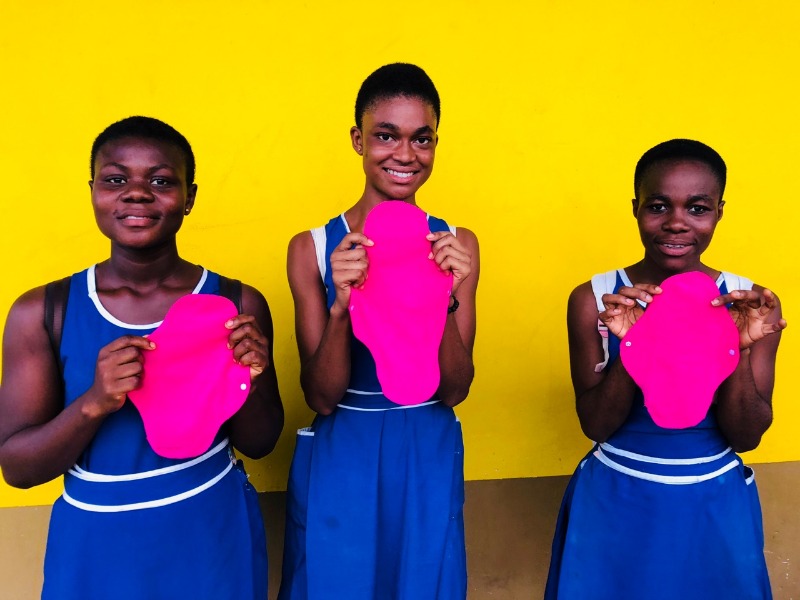 C7E607863F...istr.jpg
(Filesize: 86KB)
C7E607863F...istr.jpg
(Filesize: 86KB)
-
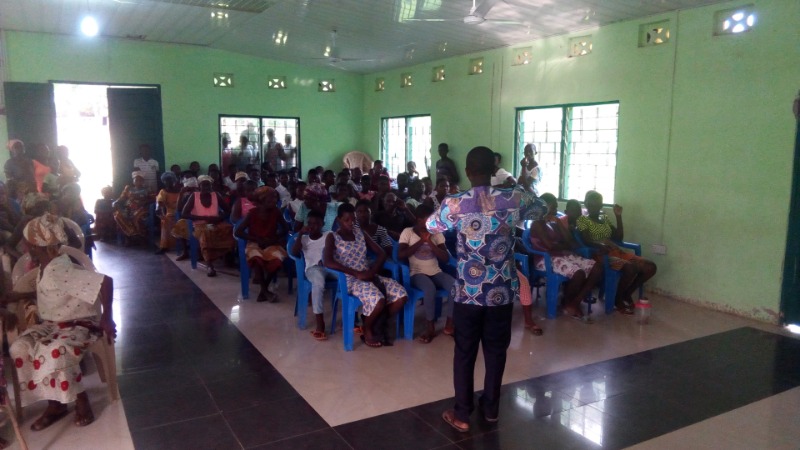 IMG_201804...2929.jpg
(Filesize: 161KB)
IMG_201804...2929.jpg
(Filesize: 161KB)
-
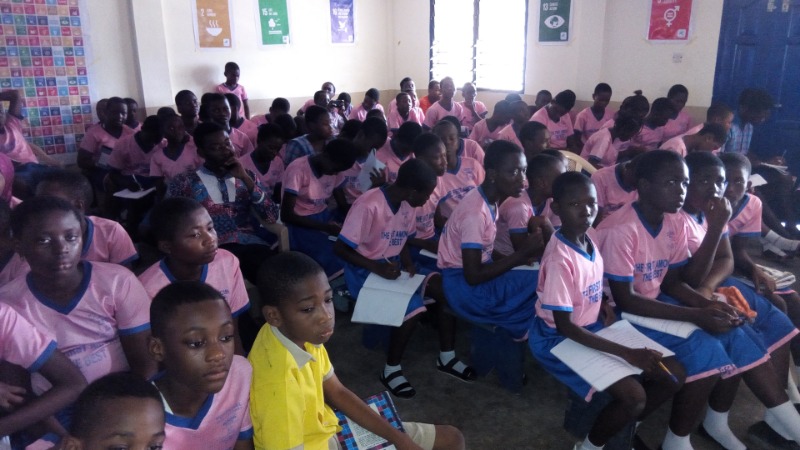 IMG_201802...1740.jpg
(Filesize: 176KB)
IMG_201802...1740.jpg
(Filesize: 176KB)
-
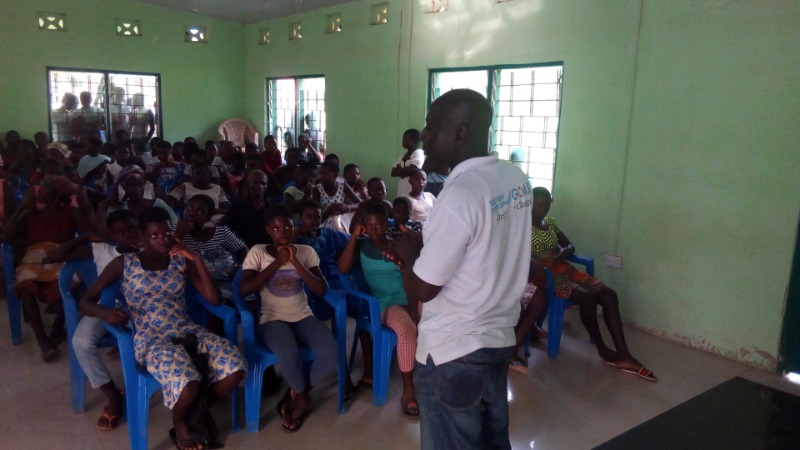 IMG_201804...3532.jpg
(Filesize: 152KB)
IMG_201804...3532.jpg
(Filesize: 152KB)
-
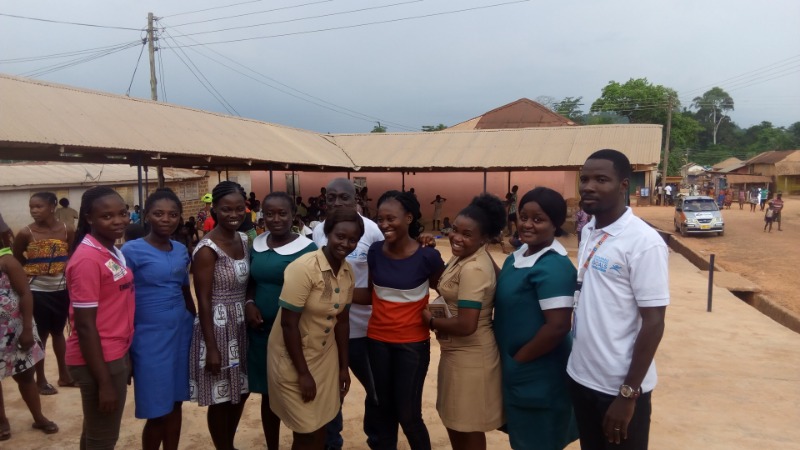 IMG_201804...2456.jpg
(Filesize: 163KB)
IMG_201804...2456.jpg
(Filesize: 163KB)
-
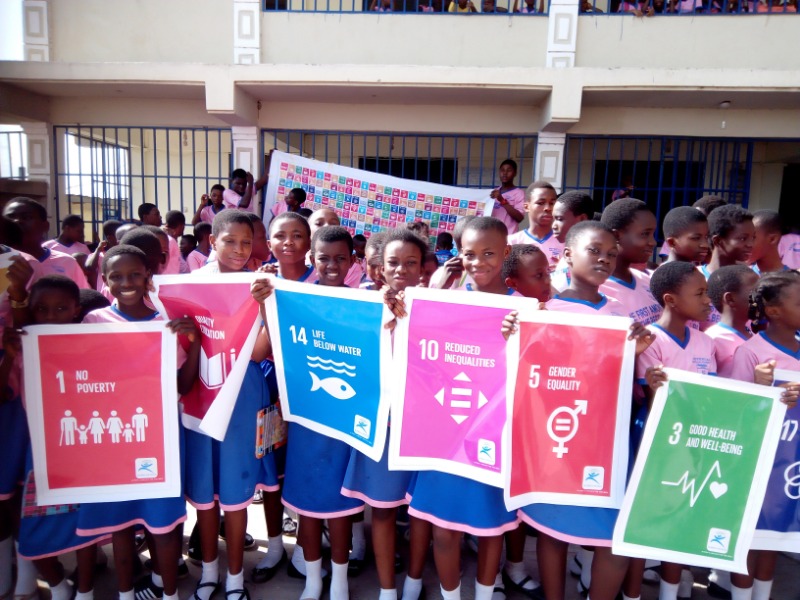 IMG_201802...2831.jpg
(Filesize: 242KB)
IMG_201802...2831.jpg
(Filesize: 242KB)
-
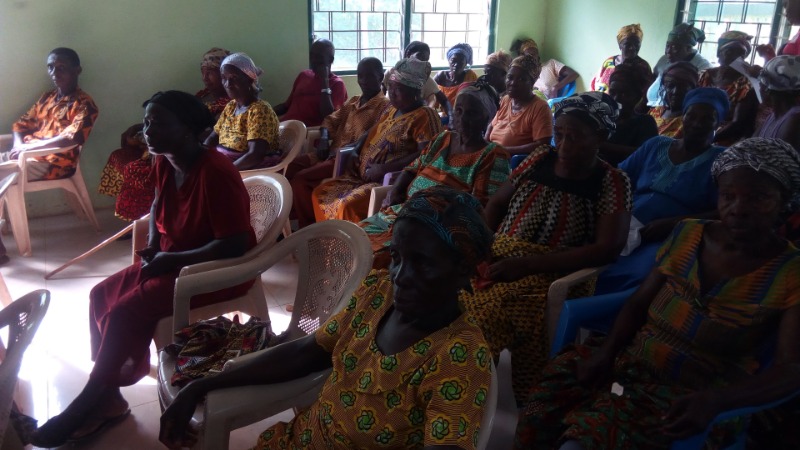 IMG_201804...4502.jpg
(Filesize: 173KB)
IMG_201804...4502.jpg
(Filesize: 173KB)
-
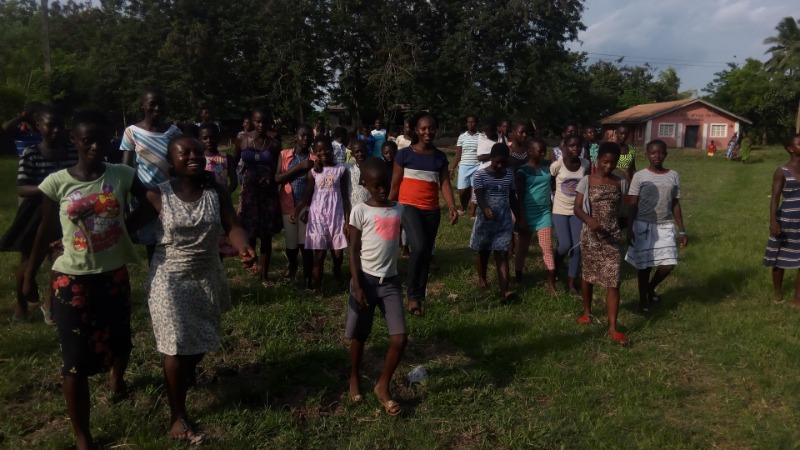 IMG_201804...1222.jpg
(Filesize: 190KB)
IMG_201804...1222.jpg
(Filesize: 190KB)
Please Log in to join the conversation.
You need to login to reply
Share this thread:
- Markets, finance and governance
- Government initiatives and regulations
- Ghana - government initiatives, private sector collaborations
- Strengthening the capacity of 100 schools in managing menstrual hygiene in central region of Ghana
Recently active users. Who else has been active?
Time to create page: 0.151 seconds







